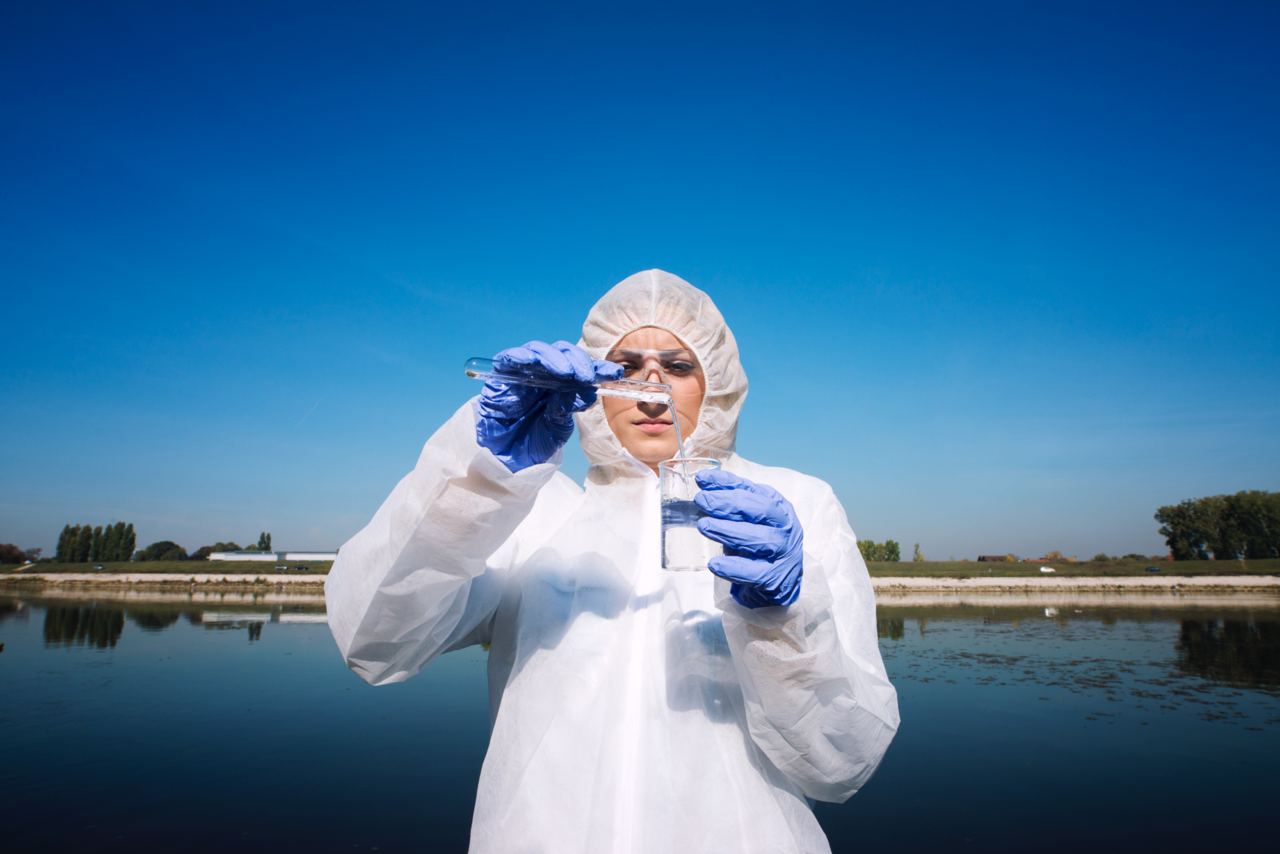Marine Biology Career Guide
Sectors / 26 January 2024
Contrary to what you may imagine, marine biologists and associated professionals only spend some of their time in and around water; much of their work is done in the lab, office or lecture theatre.
Marine biologists work in teams with other supporting professionals tasked with all sorts of jobs, like maintaining equipment and vehicles, staffing laboratories, monitoring health and safety and building software that allows teams to track and analyse marine life.
In this career guide, we’ll look more closely at three job roles in the field of marine biology: marine biologist, oceanographer and laboratory (lab) technician.

Potential Roles in Marine Biology
Marine biology is a part of several industries, including the education, environmental, military, and government sectors. As such, specific job roles may vary slightly, depending on the career path chosen. Let’s look at a broad overview of what each of our chosen job roles involves.
Marine biologists are experts on the wildlife, animals, organisms and plants that live in oceans. The career options are varied, and marine biologist jobs can specialise in areas such as fisheries, oil spill response, marine biotechnology and environmental policy. A strong interest and background in science are essential, and there can be tough competition to secure the most exciting jobs.
Oceanographers also study the world’s oceans but from a slightly different angle. Oceanography work falls under one of four fields: geological, chemical, physical, and biological. Therefore, oceanographer jobs can vary depending on which of these fields they fall within. You might focus on examining the seabed, underwater geology, and the properties of oceans, like temperature, salt content, currents and tides. Oceanographers often work closely with marine biologists and can have some overlap in work, particularly if they specialise in marine life.
Lab technicians provide any necessary support to facilitate research carried out in a laboratory. A lab technician’s job involves setting up equipment, analysing samples and recording data, supporting health and safety requirements, and helping with the daily running of the lab by monitoring stock levels, ordering supplies and cleaning.
Salary and Career Progression
Marine biologists are highly qualified and often very experienced specialists who can command professional salaries. You can expect an average salary of around £30,000 to £40,000 in the UK and $85,000 to $100,000 in the US. Starting salaries are relatively low, particularly in the UK, where some newly qualified staff earn around £25,000.
Career progression involves working in academia and publishing research for many marine biologists, which can help elevate their status in the industry. Experience does tend to correlate with salary, and senior marine biologists and lecturers can earn over $120,000 (US) and £100,000 (UK).
Oceanographers can also progress in their careers by gaining experience working in different fields and for various companies to broaden their skills and knowledge. Carrying out research and publishing scientific papers also helps oceanographers advance their careers.
Salaries start at around £25,000 in the UK and $70,000 in the US, rising to £60,000 or more and $130,000 or more, respectively. As with many careers, salaries in the US can vary from state to state.
Lab technicians are not required to have the same level of qualifications and training as qualified marine biologists or oceanographers, which is reflected in the expected salaries for this job role. Lab technicians can earn between £18,000 and £40,000 in the UK and between $35,000 and $60,000 in the US. Career progression is possible; with experience, you can move up to a senior lab technician position. Progressing to other job roles typically requires further training.
Qualifications, Education and Experience
Marine biologists must have the following:
- Good secondary school qualifications to access further education: GCSEs in the UK and a High School Diploma in the US
- 2-3 A Levels (UK)
- A Bachelor’s degree, preferably in a science or marine-based subject, like marine biology or oceanography
- A postgraduate degree, for example, a Master’s degree in marine biology, is often required in the UK and may be advantageous in the US
- A PhD is beneficial
- Diving experience and qualifications are desirable
- Experience working in labs or the field in a junior position is desirable
Oceanographers require the following:
- Good secondary school qualifications to access further education: GCSEs in the UK and a High School Diploma in the US
- 2-3 A Levels (UK)
- A Bachelor’s degree, preferably in oceanography, marine science, or a similar subject
- Postgraduate study in oceanography (e.g. a Master’s degree) is often required in the UK and may be advantageous in the US
- A PhD can be beneficial
Lab technicians do not need a university degree, but they can benefit from the following:
- Good secondary school qualifications: GCSEs in the UK and a High School Diploma in the US
- A Levels may be advantageous (UK)
- In the UK, many employers prefer you to have further qualifications of some sort, for example, a HND in a science
- In the US, requirements vary between states, but typically, lab technicians must hold a Bachelor’s degree or an Associate’s degree

Skills
Marine biologists are skilled professionals and must have the following:
- A love of water and marine life
- Analytical thinking
- Attention to detail
- Good mathematical aptitude
- Excellent communication skills
- Research skills
- Self-motivation
- Patience and observation skills to carry out lengthy projects and observe wildlife over long periods
- Willingness to work out at sea
- IT skills
- Diving experience
Oceanographers need the following skills to succeed:
- Excellent communication skills
- Analytical thinking
- Attention to detail
- Self-motivation
- Research skills
- Laboratory skills
- A love for water and marine life
- Willingness to work out at sea
Lab technicians must have the following:
- Attention to detail
- Knowledge of and respect for health and safety requirements
- Methodical and analytical thinking
- Good organisation
- Ability to work well in a team
- An interest in science
- Knowledge of relevant laboratory equipment and how to use it
- IT skills
Working Hours
The working hours for marine biology and associated careers vary depending on the exact role and can change throughout a project. You may have periods of time when you are out at sea or working in the field to gather data and make observations, then other times when you are working in a lab, analysing findings or carrying out office-based work.
Of course, if you choose to go into academia and teaching, your hours are more likely to be regular, with many senior professionals managing their own hours and workloads.
Notable Locations
These careers tend to centre around coastal areas to provide easy access to the oceans and seas under observation. Notable locations include:
- San Diego, California
- Florida, US
- La Spezia, Italy
- Plymouth, England
- Oban, Scotland
Notable Companies
- NASA Kennedy Space Center, Florida, US: The world-famous space exploration organisation hires marine biologists to monitor marine life on its property
- Scripps Institute of Oceanography, San Diego, California, US: Offers educational courses and jobs in all areas of marine observation
- Centre for Maritime Research and Experimentation, Italy: Carries out cutting-edge research and technology development for NATO
- Institute of Marine Sciences, Plymouth, UK: World-leading marine research and teaching centre
- Scottish Association for Marine Science, Oban, Scotland: Highly specialised research centre that delivers findings to governments, businesses and policy-makers
Next Steps
Sign up to JobLookup for the latest marine biologist jobs straight to your inbox. To start your job search today, read The Ultimate Jobseeker Guide for tips and advice on landing your next role.



